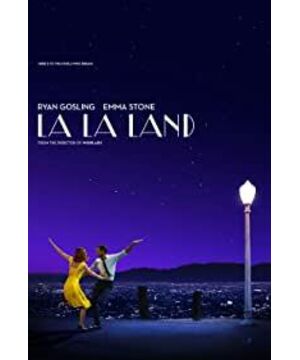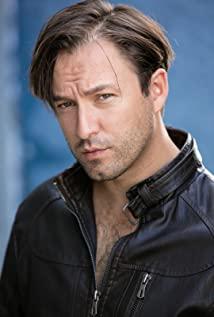(This article is exclusively published in ViewMovie simultaneously. If you want to reprint it, please ask for confirmation first)
Damien Chazelle, the high-profile newcomer director and editor, has encountered an interesting "goodwill dilemma" in recent years. The meaning is: audiences tend to interpret his films with a kind of self-confessed kindness, and direct the explanations of these films in a direction that they want to see more and are usually kinder, which makes him soar. For example, "Whiplash" is interpreted as an inspirational chicken soup made by a young drummer in exchange for hard work, or "La La Land" (La La Land) is interpreted as a hero and heroine who pursues dreams. Come to Los Angeles to fall in love with each other, and finally reluctant to part with the dream story to chase the dream.
This is really puzzling. In fact, Damien Chazele is probably the most demanding filmmaker for dreamers and the most unkindness in the world. His film is omnipotent in expressing his extremely extreme life profile with an unassuming but unobtrusive strange sound-the denial and criticism of the lack of talent.
This is the case with "Attack Drummer". In the linear aspect of the inspirational story, this story has repeatedly hinted at the seeds of tragedy, suggesting that the drummer’s hard work is not an achievement, but a tragedy. From the beginning to the end, the description of the person’s ability is avoided. Whether the results of his hard training are such that he feels so good has never been affirmed by an outsider. Only his paranoia, demons, and the teacher nodded with him. The madness of public performance as the only achievement of art has been infinitely magnified. In the end, he lost both his studies and career. If he had no abilities, it is conceivable how miserable his life would be.
How can this kind of tragedy have the slightest bit of inspiration? "Happy to Love You" is the continuation of this tragedy concept.
Sebastian and Mia were unable to become famous in Los Angeles, not only because of the cruel reality, but also because they didn't have the capital to become popular-they wanted to be art, but they had no talent or virtue. Sebastian Sung-il’s complaint about everyone’s lack of understanding of jazz is exactly the same face that he ridiculed and ridiculed the jazz sanctuary for samba snacks; he did not allow the audience to come to the jazz scene for the first time. He misheard any of the notes, but allowed himself to honk the car horn anywhere in the residential community where he entered and exited many times just to wake up a woman with a mobile phone.
Mia is dissatisfied with the fact that her cohabitants are actively looking for business cooperation in the major parties in Los Angeles. She thinks that she is a messenger, but when she was invited to the filmmaker’s dinner, she just got up and left without saying a word for personal matters. Then she deserved respect. 'S theater stood next to the screen and blocked the sight of all the audience to find a man with a mobile phone.
These two people have grown to hope that the world will respect what they care about (jazz, performance), but they have a serious lack of understanding and appreciation of the elegance of other people's world, and their personalities are greatly flawed. And just like "Attack Drummer", Sebastian’s ex-friends run the orchestra so well, but they reluctantly find him to replace them until someone has an accident. Mia’s repeated auditions are not going well, and the stage plays written and performed by Mia are not well received. No more unacceptable praise, these arrangements all implied that their performance was not self-confessed misfortune, but not brilliant enough to make outsiders tolerate this defect.
However, relying on compromising with reality, the untalented and morally succeeded. Only five years later, Sebastian had the private bar he dreamed of, and Mia became the multinational celebrity he dreamed of, simply because they abandoned themselves and the love that was born in response to them.
This arrangement is precisely the reason why "Happy to Love You" should not be simply distinguished as a common theory of dream/reality opposition. Abandoning oneself sounds so sinful, but it is not. If you compare the ending "Café Society" with the same theme as this year’s story and the opening film of the three major movies, you can understand that the reality interpreted by "Coffee Love" is As time goes by, everyone is placed where they don't want to be. People will not change but their positions will change. Time can never turn back. "Happy to Love You" is not the case. The hero and the heroine can achieve the most desired achievement in their lives, just because they have changed. In five years, they have cultivated the talents that can be used on the stage, or they have worn off their self-indulge. Thoughts of disrespect and vice, or even both, in exchange for self-cultivation.
In other words, compromising reality makes them better people in all aspects, both talents and morals. Only by sacrificing the melancholy of love, can all these changes be exchanged, and will they automatically become a better person? This is a fairy tale that is bigger than a dream come true, a fairy tale called an adult fairy tale.
The opposite of the dream may not be reality, it may be another dream. "Pawn your pants and keep your thoughts." (Yi Xian Quoting Poems), "Le Lai Love You More and more" makes this relationship more inevitable. The relationship between dream and reality becomes a dream and both ends are dreams. On the seesaw, the hero and heroine abandon one end, and the other end will automatically lift off, as if fate can be determined by yourself, as long as you compromise, everything will go smoothly, even if you have no talent or virtue.
Of course, all this may be just a coincidence. Damien Chazere still encourages dreams and encourages everyone to pursue dreams. Don’t take your talents in mind. The strange sounds in "Attack Drummer" and "Let’s Love You More and More" are just foils. . However, if this is the case, the greater tragedy will be long overdue, because the only thing left for the whole drama to really get close to the reality of the audience is the sorrows against jazz and the film industry.
The film speaks very plainly. Jazz is about to be silenced unless it can be transformed; the film is indeed losing its vitality, as evidenced by the large-scale entry of Chinese capital and the end of the old theater. Mention it). In other words, this is not a clarion call praising the immortality of jazz and the immortality of movies. It is an elegy, a reaction, just like the hundred-person car dance that happened on the highway in the opening section. The more depressing the traffic jam, the more flexible the pace will be; The more dead in autumn, the deeper the singing of praise of summer. The greater the pain can only be overwhelmed with the stronger pleasure. This is the reflection of the whole film. Behind the undeserved love between the hero and the heroine, what really moves towards death is the stage itself that seems to have created them.
View more about La La Land reviews











